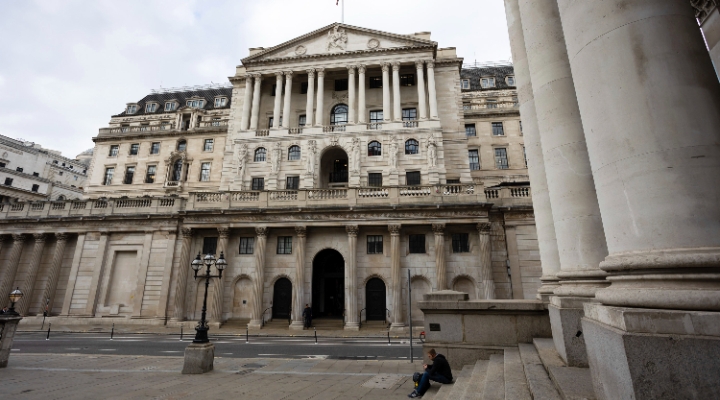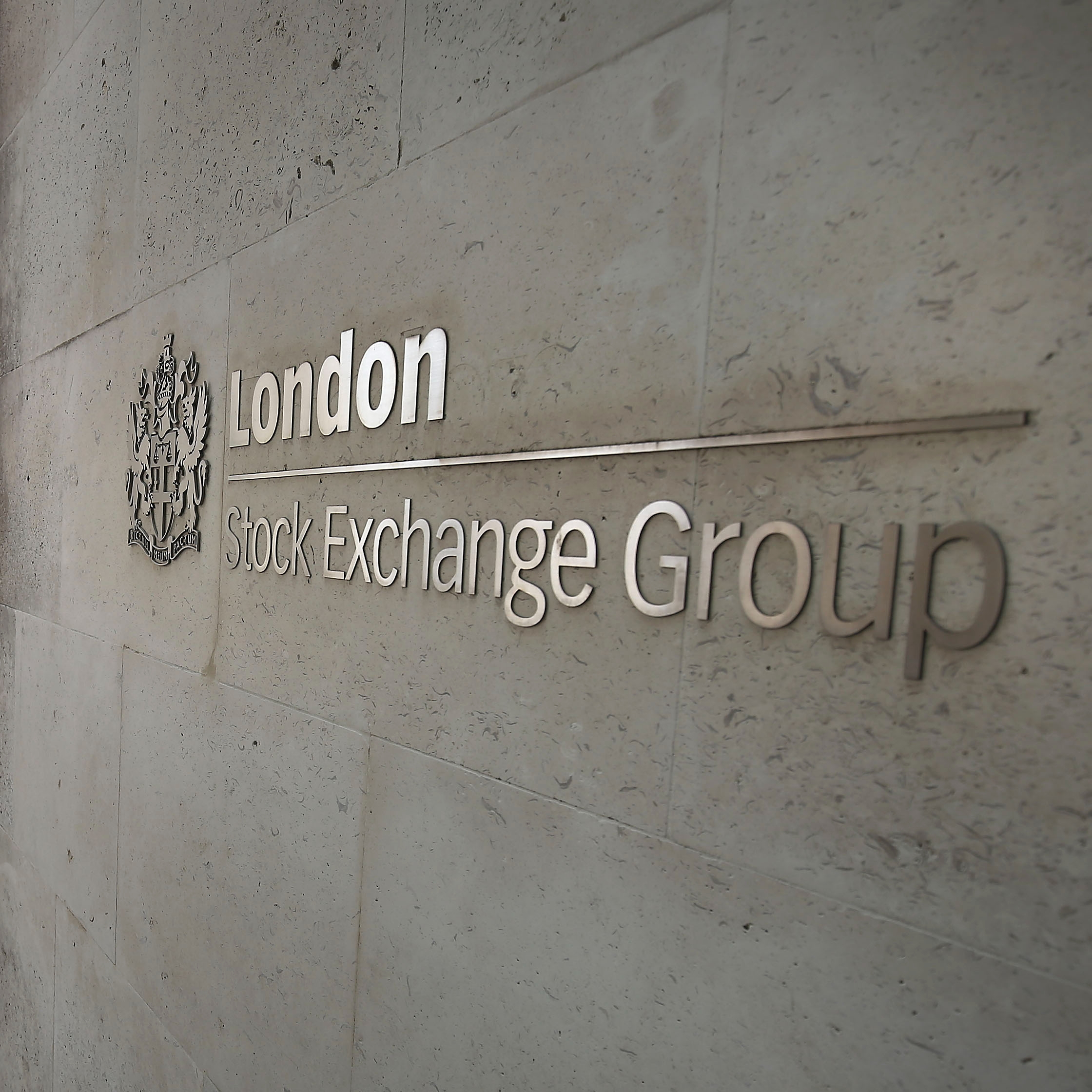Christopher Johnson: On to your funds, so year-to-date the JO Hambro UK Equity Income fund, which is Silver medalist rated by Morningstar, returned 17.47% beating our index, the Morningstar UK All Cap Index. So, what do you put this out performance down to?
Clive Beagles: Well, the number of factors really, and we're beneficiary of—where we started the conversation—beneficiary of some incoming M&A. I think we've had six, we own about 60 stocks, about six of those stocks have had a bid approach this year, but not all of them have consummated, interestingly. So, three have consummated, three have been rejected. So that's probably part of the equation. But I wouldn't want people to think that's the main part of that.
I mean, you look at actually the stronger performers within our fund, it would be areas like banks, stocks like Barclays and NatWest are up 50% this year, I think. We've got a stock that you've probably never heard of called Keller, which is a sort of mid-cap construction company which does a lot of work in the piling and geotechnical area. That's had six or seven upgrades in the last 18 months. Those shares have nearly doubled, just an example.
And I think at the same time, the election obviously has brought a degree of certainty, not total certainty – we've got the Budget still to kind of work our way through. But I think that has also led people to begin to think about more domestically orientated stocks, and stocks like Marks & Spencer and Currys, and these kinds of names are also up very strongly so far this year, as people are beginning to anticipate a sort of stronger period of consumer spending and growth domestically. So, a combination of all those things really.
CJ: And on NatWest, they have a new chief executive, Paul Thwaite. What is your view on the direction that he is taking the business in? I mean, you mentioned that NatWest is doing very well, so you must be happy.
CB: Yeah, I think it's not a radical change. Obviously, he was brought in in slightly difficult circumstances. Alison Rose had to step down after the slight controversy around Nigel Farage and all that stuff. So, he comes from the sort of—I mean, NatWest's core franchise is its lending to small and medium-sized businesses. That's where its strength is, if you like, and that's the part of the business that he comes from. So, I don't think there's going to be a radical change of direction. Obviously, you had a period in which banks were very unloved for a long period of time. Interest rates have gone up, but they haven't yet captured the full benefit of that. There's this slightly technical issue called the structural hedge which I don't want to get into the weeds of that. But at its very simplest, banks tend to tend to hedge a high proportion of their current account balances over a rolling five-year period, because they know most people tend to keep a working balance in their current accounts. They don't tend to move that around. So, they're fairly certain that a high proportion of those balances will still be there in five years' time.
So, five years ago, they were hedging those balances at less than 1%. Today, when those five-year hedges come up to be, if you like, re-hedged, they're doing it more like 4%. It may not sound that they're law of small numbers, but we're talking on a very large number. So, for the next two years, NatWest, with nothing else changes, their profits will go up by almost a billion pounds next year and the year after, simply from that dynamic alone, which is, I think, still being underappreciated.
The other thing that I think we're beginning to see the very start of is volume growth in lending. We haven't seen that in the UK—let's be frank—ever since the financial crisis in 2007. If we had more time, I'd talked you through the loan-to-deposit ratio in the UK, which is an extraordinary chart, a truly extraordinary chart. The UK has gone from having broadly 700 billion more loans than deposits at the time of the financial crisis to now 400 billion to 500 billion more deposits than loans in the UK. More people in the UK own a home outright than have a mortgage. So, if you like, even though there's still this external perception, the UK is some kind of over-leveraged, over-geared economy, the exact opposite actually is the case. It's really been a dramatic change since 2007.
CJ: Why has that happened?
CB: Well, it initially happened because the banks had to rebuild the capital ratio. So, if you remember—if go back to 2007, banks, people like Northern Rock, obviously went bankrupt, and it was offering 125% loan-to-value mortgages and so forth. But banks only had a capital ratio of about 4%. And effectively regulating—it obviously had to get bailed out or have emergency rights issues and so forth. Those numbers are more like 14% today rather than 4%. So effectively, they really haven't had the capital to lend. At the same time, they had to pay an awful lot of fines for PPI and other elements. So that happened.
But obviously, during that whole period, of interest rates effectively were zero, but consumers in particular had no appetite to take on new leverage. They were just very cautious. And obviously, we've had all these uncertainties over the last 15 years. We got down to around parity in terms of loans and deposits, and then Covid came along. And of course, Covid meant that for a period of a year, a year-and-a-half people were not allowed to go out and enjoy themselves, spend money. And an extra 300 billion of deposits of savings emerged from Covid, which still haven't been spent, unlike the US, where actually they have been spent, very different dimensions coming on there. So that's now left. It is really unusual position. It had never been seen before in the sort of 60, 70-year history of the UK economy, where we've got 300 billion, 400 billion more deposits than loans.
So, one of the ironies, all the debate around Rachel Reeves, which you're probably going to ask me about in the Budget, it was all about the state of the public sector balance sheet and the fact that there's too much—we've not much wiggle room. What the debate should be about is not about the public sector balance sheet, because all Western governments have taken on more debt post covid, but how strong the private sector balance sheet is, both consumers and corporates. And all we need to do is increase confidence, provide a line in the sand, everyone knows where their taxes are going to be and so forth, and just allow people to feel a bit more confident and to start spending some of those accumulated deposits.
Now deposits are not evenly distributed across all society, I get that. They're more in the hands of the over 55s than the under 30s. But in aggregate, those numbers do matter. And I think if we can get that, we could have a period of 10 years of higher-than-expected loan growth and commensurately, a slightly better GDP outlook than a very cautious consensus assumes. It's a big picture issue, but it really is all they need to do, the Labour Party, is just provide enough confidence. And you saw until last month's number, UK consumer confidence was running a three-year high, because everyone knows that the state of their own personal finances is quite good, but they haven't quite the confidence to go out and spend it, unless there's a special event like Oasis tickets or whatever it is, suddenly you can see the pent up demand when there's an event that people really want to participate in, but they can't quite get there yet.
CJ: So, in the Budget, what do you think Rachel Reeves has to do to kind of redress the chasm in consumer confidence? What would you like to see?
CB: Well, I guess—all we—we had obviously this sort of dire of gruel that they've been delivering, which is clearly all about politics rather than about reality. They haven't inherited a terrible situation. We've got unemployment between 4% and 4.5%. We've got this extraordinarily strong policy. So, they just need to create certainty. They want people to feel that the rules are going to change regularly. This certainly—this sort of provide some (indiscernible) for the next four to five years. That's clearly going to be at the margin, a bit of wealth redistribution. Yes, I mean, that's what left wing governments are likely to deliver. But I suppose, in a way, all that debate is around capital gains tax, inheritance tax. The vast majority of the UK public don't really care about that. Unfortunately, the people who comment on markets do care about that stuff. So, I think that's having a bigger sort of impact, if you like, than actually the real—it's like almost like a Wall Street versus Main Street kind of dynamic here. The average person on the street doesn't really care about that. They just want a bit of certainty.
So, look, she might extend the fiscal headroom a little bit. But there's obviously a whole set of different measures. Maybe they increase the rate of national insurance that employers pay. That would be an easy way to raise a few billion pounds. But I think we just want a line in the sand. This is the one or two measures we're going to take to sort of try and redress. But reality is the best way to get your fiscal ratios in a better place is not to raise taxes. It's to grow the economy. And then as a percentage the debt ratio begins to come down. And the way to do that is to try and release this spending power that both consumers and the private sector companies have. And that's what I really want to see. And they should be able to do that. But they definitely have overdone the misery and even they, I think, realise they've overdone the misery, started to sort of – she wrote an article in The Times a couple of weeks ago that tried to redress that balance a little bit.
CJ: Clive, thank you so much for being here with me.
CB: Thank you.
CJ: This is Christopher Johnson for Morningstar UK.





























